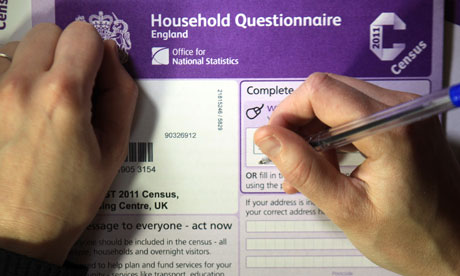The hidden families who have to share
When there’s a housing shortage, only a fraction of those affected end up sleeping on the streets or in council temporary accommodation. What happens to the rest? Analysis of data from the 2011 Census is building up a picture of those most affected by the housing crisis. The latest revelation is that well over a quarter of a million families are “concealed” because they are living in other households.
Overall there are estimated to be 289,000 families living in another family’s home in England and Wales – most of them under the age of 35. This is 70 per cent higher than the figure from the 2001 census, an increase of over 100,000 families. Just under half of those concealed are childless couples, but there are also significant numbers of lone parents. Not surprisingly, there is a concentration of such families in London, with more than one in ten childless couples in Brent and Newham being ‘concealed’. However, there are also high percentages of affected families in cities such as Leicester, Bradford and Birmingham.
The figures on concealed households are by no means the full extent of sharing, although they are perhaps the most dramatic example. They don’t include single young people still living with (or who have returned to live with) their parents (the so-called “boomerang” generation). They also exclude single older people living with adult children. So this latest report reveals a sizeable number of families who would “normally” have a separate home but can’t find one.
Unfortunately the government no longer produces regular estimates of housing need. The last one, published by the coalition but commissioned earlier, was by Glen Bramley and others in November 2010. This suggested that the backlog of housing need would peak in 2009 then gradually decline as housebuilding recovered after the recession. But we now know of course that there was only a temporary recovery, because in the four years since 2009 housebuilding output has been little more than two-thirds of what it was in the previous four years. As a consequence, the level of concealed family households in 2011 was about 100,000 higher than assumed in the Bramley report. If his study were to be repeated now, it would very likely show much higher levels of need not only among concealed families but because of overcrowding, sharing and the other factors the earlier report covered.
Bramley’s modelling showed that one of the best ways of helping concealed families to get their own roof is by building more houses at social rents, because concealed families are also likely to be on low incomes. So another lesson from this month’s census study is that it provides further evidence – if any were needed – that we are not building enough social housing.
That’s not necessarily the way it’s seen by the media, of course. The Daily Telegraph’s headline says house prices are forcing young couples to lodge with in-laws. While it’s true in one sense, and of course many if not all of the families affected might ideally prefer to buy, no conceivable fall in house prices or government measures to help them onto the property ladder are going to help the majority of families who are “concealed”. Only housing at affordable rents can help, and the fact that there are almost 300,000 families in this need category alone gives us pause for thought about the scale of investment now required.
Original post and comments: Chartered Institute of Housing
